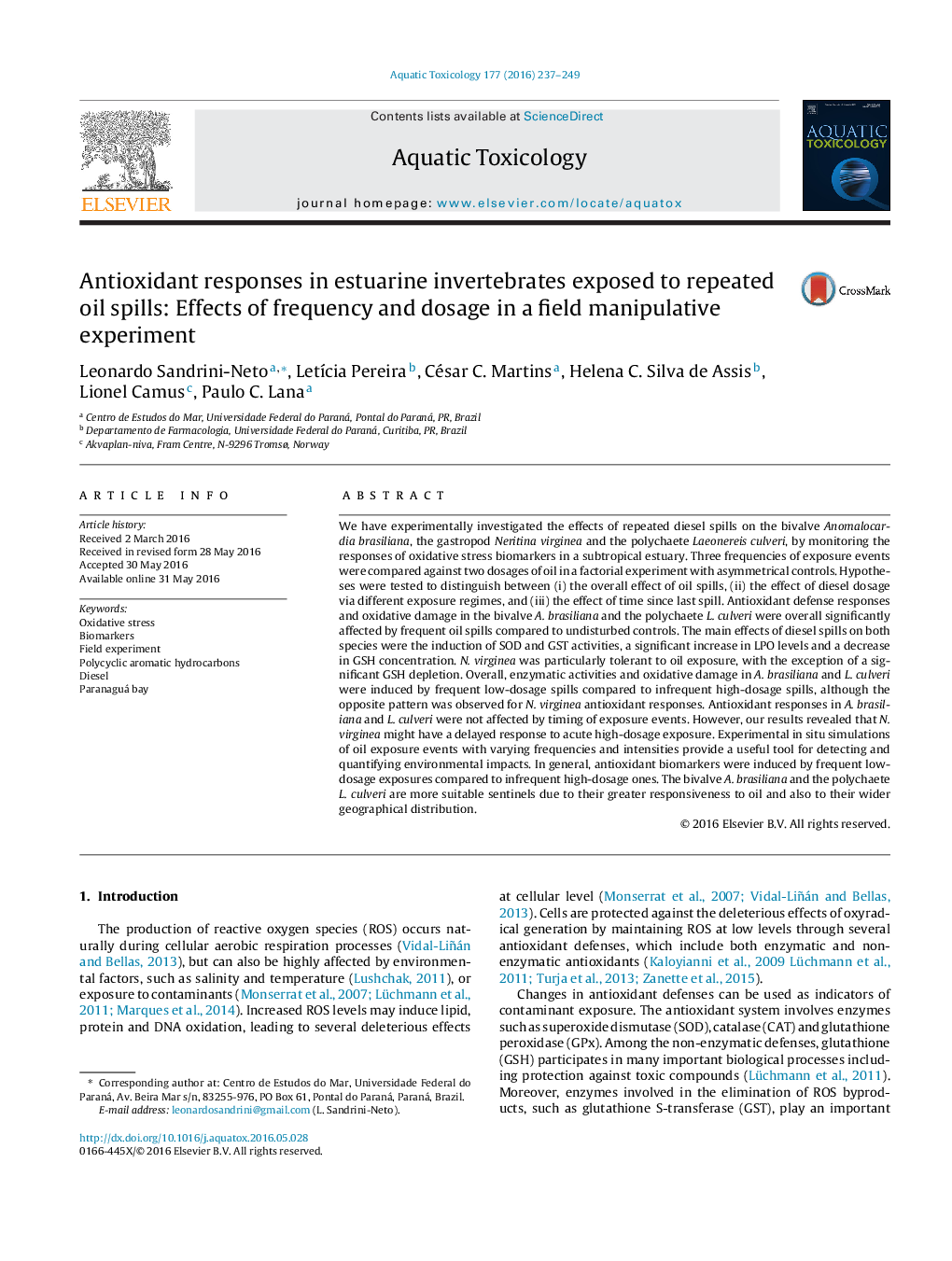| Article ID | Journal | Published Year | Pages | File Type |
|---|---|---|---|---|
| 6382012 | Aquatic Toxicology | 2016 | 13 Pages |
Abstract
We have experimentally investigated the effects of repeated diesel spills on the bivalve Anomalocardia brasiliana, the gastropod Neritina virginea and the polychaete Laeonereis culveri, by monitoring the responses of oxidative stress biomarkers in a subtropical estuary. Three frequencies of exposure events were compared against two dosages of oil in a factorial experiment with asymmetrical controls. Hypotheses were tested to distinguish between (i) the overall effect of oil spills, (ii) the effect of diesel dosage via different exposure regimes, and (iii) the effect of time since last spill. Antioxidant defense responses and oxidative damage in the bivalve A. brasiliana and the polychaete L. culveri were overall significantly affected by frequent oil spills compared to undisturbed controls. The main effects of diesel spills on both species were the induction of SOD and GST activities, a significant increase in LPO levels and a decrease in GSH concentration. N. virginea was particularly tolerant to oil exposure, with the exception of a significant GSH depletion. Overall, enzymatic activities and oxidative damage in A. brasiliana and L. culveri were induced by frequent low-dosage spills compared to infrequent high-dosage spills, although the opposite pattern was observed for N. virginea antioxidant responses. Antioxidant responses in A. brasiliana and L. culveri were not affected by timing of exposure events. However, our results revealed that N. virginea might have a delayed response to acute high-dosage exposure. Experimental in situ simulations of oil exposure events with varying frequencies and intensities provide a useful tool for detecting and quantifying environmental impacts. In general, antioxidant biomarkers were induced by frequent low-dosage exposures compared to infrequent high-dosage ones. The bivalve A. brasiliana and the polychaete L. culveri are more suitable sentinels due to their greater responsiveness to oil and also to their wider geographical distribution.
Keywords
Related Topics
Life Sciences
Agricultural and Biological Sciences
Aquatic Science
Authors
Leonardo Sandrini-Neto, LetÃcia Pereira, César C. Martins, Helena C. Silva de Assis, Lionel Camus, Paulo C. Lana,
